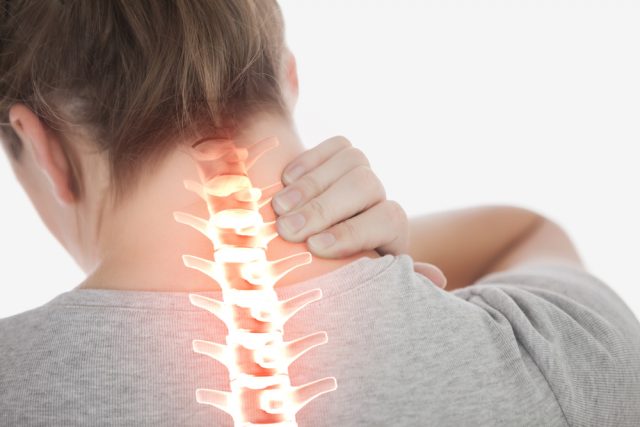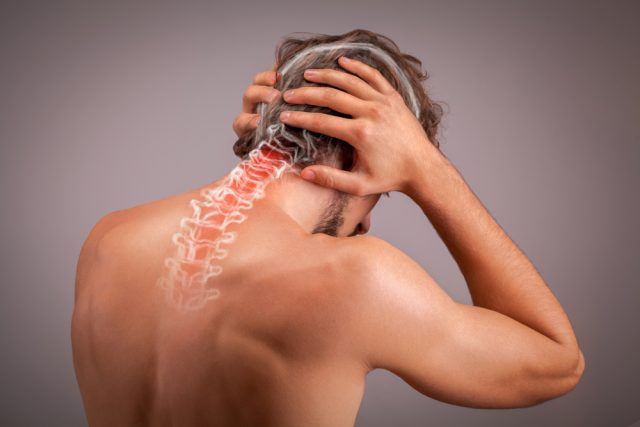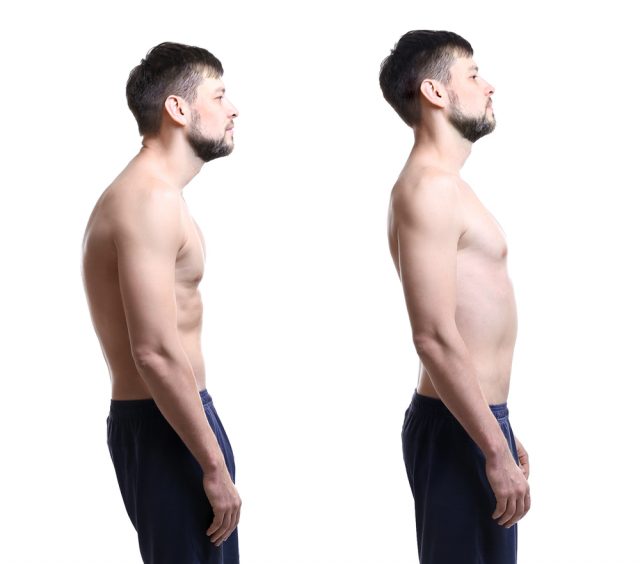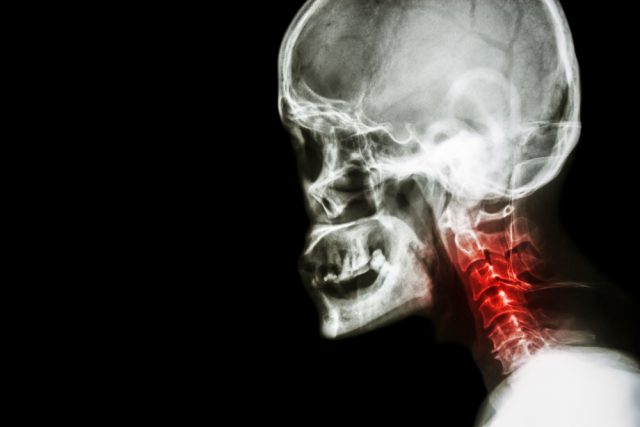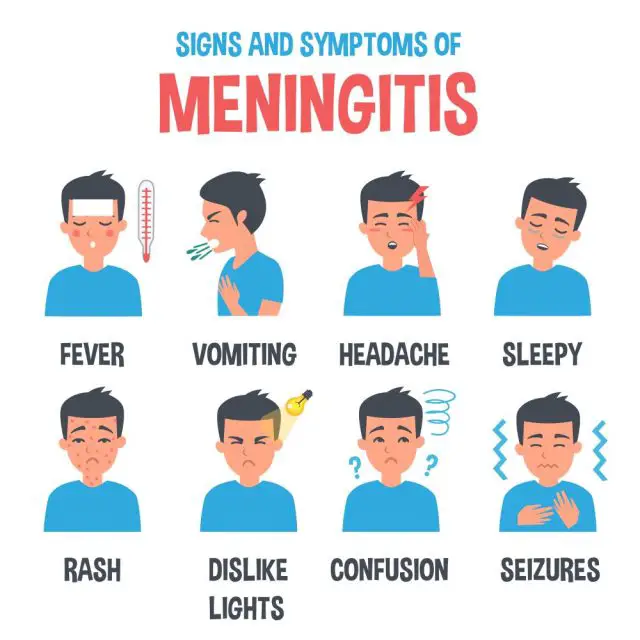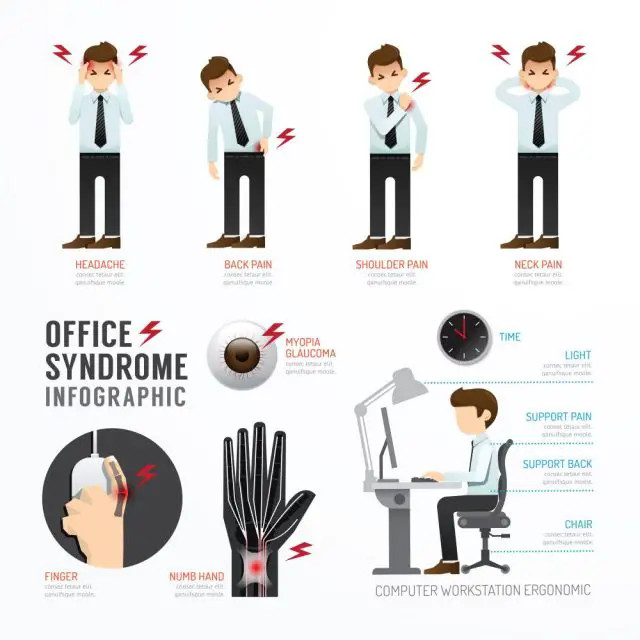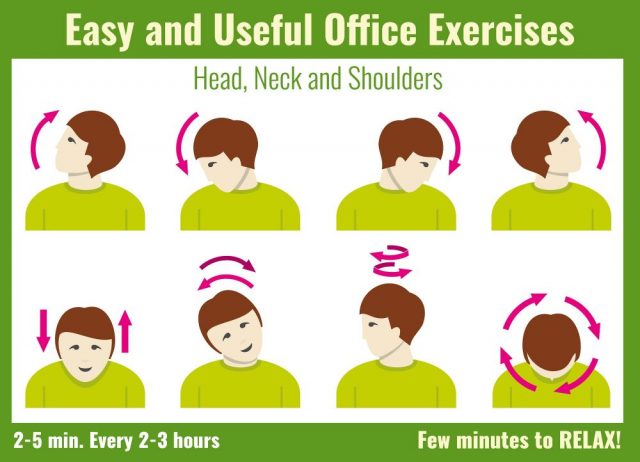Why Does My Neck Hurt?
Introduction
The neck is the area of the bodywhich connects the head to the chest which means that if anything, even slight pain, appears on the neck, the entire body will be affected. Any illness, abnormalities, injury, or irritation can cause pain in the neck. Numerous individuals encounter neck agony or solidness frequently. Much of the time, it’s because of weak stance or misuse. Now and again, neck torment is caused by damage from a fall, contact games, or whiplash during an accident.
Most of the time, neck pain is due to a minor soreness or stiffness that goes away within a few days’ time after giving the area a rest or with the help of a neckmassage. However, if the ache keeps on going for more than two weeks even will all the home remedies, then it might be something more prominent and the person suffering should immediately visit a doctor. Individuals should never try to delay or ignore their symptoms or pain as they can turn out to be something serious and life-threatening.
In some rare cases, neck pain can be a caused by cancer, and other severe problems like a spinal cord injury or autoimmune disease. These diseases can occur when you have had other symptoms associated with the neck pain. If you have been in a mishap or another prominent, serious incident, make sure you visit a doctor immediately without wasting time on symptoms as not to make it worse.
Below are details about some of the causes, symptoms, precautions and as well as the complications associated with continuous and persistent neck pain;
Causes of Neck pain
There are several reasons as to why pain in the neck occurs. Some of the causes are usual and non-serious while others (and rarer) causes can be severe or they might lead to something grim.
- Bad posture – If you are a teenager, you would know this more than anyone else, as teenagers are always using their laptops or mobile phones, with head and neck facing downwards.
 They never tend to sit straight which leads to neck and back pain. Not only the books, in school while studying or in universities, looking at the projector, but the muscles in the neck can also get pulled or strained. This condition is not limited to teenagers only. Adults with desk jobs may become victim to it as well due to continuously bending over the desk.
They never tend to sit straight which leads to neck and back pain. Not only the books, in school while studying or in universities, looking at the projector, but the muscles in the neck can also get pulled or strained. This condition is not limited to teenagers only. Adults with desk jobs may become victim to it as well due to continuously bending over the desk. - Sleeping Positions – Sometimes neck pain that usually occurs in the morning is due to improper sleeping positions. Due to awkward head positioning during sleep, an individual can wake up with a stretched, painful neck which persists for the entire day and is only relieved by the use of painkillers and a hot bath. This can also happen due to sleeping on uncomfortable platforms such as sleeping on a lumpy or very hard mattress, on a chair or a sofa.
- Stress – Initiated neck torment is characterized by pain that is either reactivated or exacerbated by mental or emotional conditions and situations. For instance, the underlying neck torment might be caused by damage to the muscles in the neck, which might be strained and therefore cause pain. However, the torment proceeds for a considerable length of time or weeks after that the strain caused by the injury or different conditions terminates—possibly long after the muscle tissue in the neck has recuperated from the underlying mischance. This does not imply that that pressure actuated neck torment is “all in your mind”— the agony and indications are genuine. It’s merely that the causes are not physical but instead related to stress you are under, which presents by straining the neck muscles.
- Infection – Infection of the throat and the structures related to it, is one of the most common causes of pain. Sometimes a simple but persistent flu can spread to the pharynx and the larynx and cause severe pain in the neck. The other symptoms associated with it is a blocked or running nose, ear pain hoarseness of voice and cough. This infection is a seasonal condition and can be treated with course of antibiotics for a week.
- Tuberculosis -One of the most common infections that is the cause of neck pain is respiratory tuberculosis (TB). TB causes the lymph nodes and other structures present in the neck to swell, leading to the compression of the surrounding areas. This can cause muscles to become strained especially when in combination with a persistent, painful, hacking cough.
- Whiplash Injuries -Damage to the ligament and solid structures of the neck and shoulder can be caused by sudden acceleration or deceleration, such as in a head-on automobile collision. Similarly, it can cause muscle present in the neck and shoulder regions to stain. It is a severe injury, and might even lead to damage to the cervical vertebrae or spinal cord, making the individual paralyzed from the neck down, if the damage is severe.
- Cervical spondylosis –This is a developmentaldeterioration influencing the spinal discs in the neck.
 When the spinal discs dry out and constrict, indications of osteoarthritis occur, including hard projections. This condition influences more than 85 percent of individuals older than age 60.
When the spinal discs dry out and constrict, indications of osteoarthritis occur, including hard projections. This condition influences more than 85 percent of individuals older than age 60. - Cervical dystonia –It is a problematic state which includes thecontracting of neck muscles automatically, making your head bend or swing to the other side. This condition can likewise make your head wildly incline forward or in reverse. A different issue that can happen at any age, cervical dystonia frequently occurs in moderately aged individuals, females more than males.
- Meningitis – This particular condition is an irritation of the tissue which encompasses the mind and spinal cord fibers.
 Individuals who go through or face this condition, fever and headache frequently occur in association with a rigid neck. This condition can be fatal and is, therefore, a medical crisis. On the off chance that you have face the side effects of this disease known as meningitis, such as a high-grade fever, severe and persistent headache, vomiting without any nausea before it, quickly consult a doctor and seek help.
Individuals who go through or face this condition, fever and headache frequently occur in association with a rigid neck. This condition can be fatal and is, therefore, a medical crisis. On the off chance that you have face the side effects of this disease known as meningitis, such as a high-grade fever, severe and persistent headache, vomiting without any nausea before it, quickly consult a doctor and seek help.
Type of neck pain and associated symptoms
- Stiffened neck – Soreness with trouble moving the neck, particularly when attempting to move the head from side to side.
- Sharp agony – This indication can be torment limited to one specific spot and may feel like cutting or stinging in character. Regularly, this sort of suffering happens ininferiorpart of neck.
- Emanating torment – The pain can transmit alongside the nerve of the neck and from there to the shoulders plusthe arms. The force can fluctuate, and this nerve torment may be like it is consuming or stinging.
- Shivering, deadness, or shortcoming – These sensations can go past the neck and transmit in the shoulder of the person, arm as well as finger. One symptom could be the sensation of pinching. Commonly, the torment that emanates down the armis felt in just a single arm.
- Cerebral pains – Sometimes an aggravation in neck can likewise influence muscles and nerves associated with the individual’s head. Thismay as well be a pressure cerebral pain, for example, because of neck’s muscles fixing; or else occipital neuralgia, in which a clasped occipital nerve torment emanate into the side of the headas well as scalp. The neck pain can be associated with vertigo due to compression of the 8th cranial nerve.
- Neck a pain headache – Headaches that are associated with cervical joints diseases are called Neck Headaches. They are also known as Cervicogenic Headaches, which are second to the joint problems,and after the treatment of the joint, they are automatically relieved.
Neck torment ordinarily creates in one of the accompanying ways:
- Gradual onset – Neck torment may begin as mellow or happen toward the finish of a workday. Be that as it may, at that point it might possibly repeat and deteriorate with time.
- Immediately after an accident – For example, neck torment could begin directly after a bicycle mischance or having dozed fumblingly directly on neck.
- Delayed response to damage – Neck sprain indications, for example, after an auto collision, could start as soon as the damage or latter in the coming days as well, there is no fixed time. Neck torment indications may be consistent, leave rapidly, travel every which way frequently, or return irregularly.
- Suddenly with no earlier signs – Sometimes neck torment can begin amidst an ordinary day without any apparent reason. Specific exercises or developments, for example, sniffling or hacking, could aggravate the agony. Some neck wounds can deteriorate after some time.
- Neck pain relief
Neck pain can be very common or a minor problem and it can turn out to be something very threatening as well. A few ways to get rid of neck pain are mentioned below, however, in case of severe diseases such as tuberculosis, doctor’s diagnosis should be made, and no matter how small pain is, if it persists and recurrent, you should get it checked.
- For minor pains, take pain relievers like ibuprofen or apply ice or use heating pads where there it hurts.
 You can also take a steam bath or hot shower as it also helps in relieving the symptoms
You can also take a steam bath or hot shower as it also helps in relieving the symptoms - Apply balm, lotion, massaging oil or moisturizer on the skin and massage the neck. Sometimes the pain is due to stiffness or a pulled muscle.
 Avoid sleeping on your stomach, and with too many pillows under your head.
Avoid sleeping on your stomach, and with too many pillows under your head. - There are different exercises related to neck; they should be done from time to time to avoid any pain and to strengthen your neck muscles.
 However, they should be done right or it can worsen the pain in the neck and might also do more harm than benefit such as a strained muscle.
However, they should be done right or it can worsen the pain in the neck and might also do more harm than benefit such as a strained muscle. - If the pain is associated with flu, pain in the ear, running or blocked nose, then it is most likely due to an upper respiratory tract infection such as infection of the pharynx or the vocal chords. For the relief of the pain, you need to visit a doctor so that you can start your antibiotic course. The antibiotic coverage can shorten the duration of the illness. Always complete your antibiotic course, even if you feel better.
- In the presence of symptoms associated with long-term infections such as tuberculosis, you immediately need to talk to your doctor. As for the treatment, by the approval of your general physician, you will be started on an anti-tuberculous therapy. It is either a nine-month or 11-monthtreatment, depending on your disease. It consists of 4 drugs taken over a span of two months and then reduced to two drugs for the next seven months.
- For medical emergencies, such as meningitis, you need to be admitted to the hospital so that you can be started on intravenous antibiotic therapy so that the infection does not spread to your brain.

